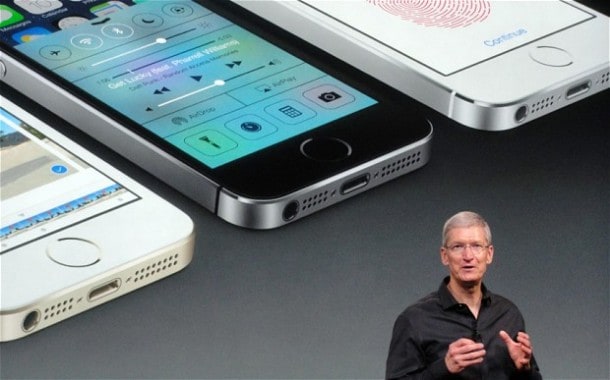
Are Apple best’s days behind it? If so, look no further than Android for the reason.
Google’s horizontal strategy, licensing its Android operating system to multiple manufacturers, has flooded the market with smartphones and tablets of various sizes, prices and qualities. Apple, on the other hand, holds its cards close to its chest. Want a tablet running iOS? There’s only game in town… that’s the iPad. And it’s available only via Apple, either direct through the web site, an Apple branded retail store, or a retailer such as Best Buy. You can, of course, also buy 4G-enabled Apple devices through carriers such as Verizon and AT&T.
As they say, we’ve seen this movie before.
In the 1980’s and 1990’s, the heydey of the PC and the “keyboard, mouse, monitor” aesthetic, Apple employed the exact same strategy. Under CEO Gil Amelio the struggling company at the time did almost license Mac OS. Steve Jobs soon put the kibosh on that, and reigned in Apple’s product strategy, which had spread far too thin–too many products, too little differentiation.
Meantime Bill Gates and Microsoft triumphed (based on market share at least) using a similar licensing model we’re seeing Google use with Android today. We did not buy PCs direct from Microsoft. We bought them through large manufacturers such as Dell, HP and Toshiba (yes, once the world’s best laptop maker). Consequently, there was simply more choice. And you were more likely to find a PC-based product (“Wintel”) on your local store shelf than you were an Apple-based one.
Sure that’a grand oversimplification of the last few decades of the computer market, but there’s little doubt we’re seeing a similar result today with Apple and Google.
Apple earned a first mover advantage; with the iPhone (2007) and iPad (2010) jumped famously ahead of the competition.
Being first meant being able to command a premium. Both the iPhone and iPad were expensive when first released. Why not? Consumers had no choice. Apple could almost charge as much as they wanted.
Soon enough, despite intellectual property suits, the competition would catch up.
In late 2009, Google and Verizon unleashed the “Droid Does” campaign. It was a milestone for the then infant Android. All of a sudden, Android-based smartphones were legitimate alternatives to the almighty iPhone. Here, amazingly, was a mobile operating system not made by Apple, that could do cool things, run apps, surf the web. Better still, it was highly customizable and, even, open to a degree. If a user didn’t like the stock keyboard they could swap it out using a third-party app. Same with the browser–lots of choice.
Tomorrow, Apple will assuredly release an updated iPad. The fifth generation iPad. Tim Cook and his team will also likely reveal new MacBooks and a few other goodies.
I’m sure they’ll be desirable. We will all want them. After all, that’s how magician Steve Jobs viz-a-viz Pavlov programmed the masses. So we must.
ALSO SEE: Apple, my friends, is dead
Wizardry and flash aside, the numbers tell a different story.
Apple’s tablet market share fell to only 32% in Q2 of this year. This is a category the company once dominated.
Guess what? Turns out Android can power decent tablets, most notably the $229 Nexus 7. And I wouldn’t rule out Microsoft just yet. Expect Microsoft to steadily gain share in the smartphone and tablet markets, especially with the death of BlackBerry. In fact, if you’ve played Risk before, envision Thorsten Heins handing over his unplayed Risk cards to Steve Ballmer.
Year over year, Apple stock (AAPL) is down about 14%.
Most worrisome of all, though, is that Apple has yet to demonstrate under Tim Cook’s leadership that it can still innovate. Under Steve Jobs Apple didn’t just release well-made, well-designed products, it created entirely new product categories and markets.
If I’m a betting man, for now I’m doubling down on Google and Android.

